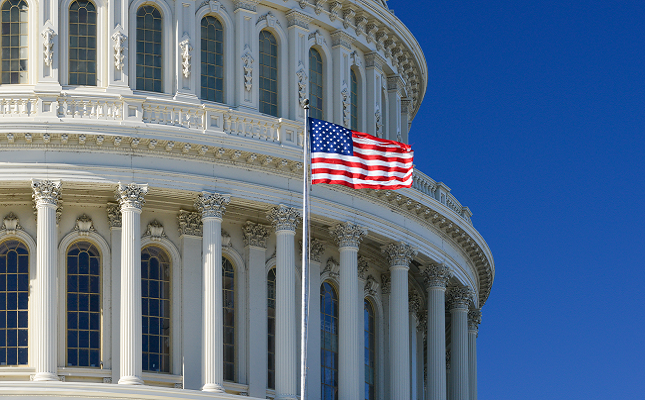JA Applauds Introduction of Sales Tax Fairness Bill in House
June 16, 15
(IDEX Online News) – Jewelers of America (JA) has announced its support for the introduction in US House of Representatives of the Remote Transactions Parity Act (RTPA). The introduction of the bill by Congressman Jason Chaffetz comes as the leadership and members of JA head to Washington, DC, to discuss sales tax fairness and other key issues with lawmakers during the Jewelers of America Political Action Committee (JAPAC) annual Capitol Hill fly-in.
If it passes, the legislation would close an Internet sales tax loophole that has hurt traditional jewelry businesses.
Like the Marketplace Fairness Act (MFA), which was introduced by the Senate in March, the RTPA would give states the option to require the collection of sales and use taxes already owed under state law by out-of-state businesses, rather than rely on consumers to remit those taxes to the states.
Currently, brick-and-mortar businesses collect sales and use taxes from customers who make purchases in their stores, but many online and remote retailers do not.
“The introduction of sales tax fairness legislation in the House is a key moment in the fight to level the playing field for brick-and-mortar jewelers,” says JA president and CEO David J. Bonaparte.
“We applaud the leadership shown by Rep. Jason Chaffetz and his colleagues in getting the bipartisan support needed to introduce this critical legislation.”
Bonaparte and other JA and JAPAC leaders met with Chaffetz last year and began a dialogue on the importance of sales tax fairness to jewelers. They expect to meet with him again this year, which will provide the opportunity to thank him personally for introducing the new bill and discuss how jewelers can continue to back his efforts to get lawmakers on both sides of the aisle behind the much-needed legislation.
The RTPA addresses some concerns surrounding the MFA, which was introduced but stalled in the House during the last Congress. The RTPA would establish audit protections for remote sellers and requires states to provide sales tax collection software and integration to remote sellers free of charge. Additionally, the bill would allow for a transition period for smaller remote sellers.